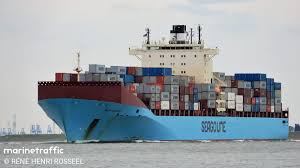Understanding Maersk: A Leader in Global Shipping and Logistics

Introduction
Maersk, officially known as A.P. Moller-Maersk, is a multinational conglomerate headquartered in Denmark, primarily recognized as the world’s largest container shipping company. The importance of Maersk extends beyond mere logistics; it plays a crucial role in global trade and the supply chain, facilitating the transport of goods across international borders. As the shipping industry faces challenges such as environmental concerns and disruptions caused by the COVID-19 pandemic, Maersk’s operations and innovations are pivotal to rebuilding and enhancing efficiency in global supply chains.
Current Operations and Innovations
In recent months, Maersk has launched several initiatives aimed at improving sustainability and efficiency within the shipping industry. As part of its commitment to environmental responsibility, Maersk has pledged to achieve net-zero greenhouse gas emissions by 2050. This ambition is materializing through investments in green technologies, including the use of biofuels and the development of new, more efficient vessels. For example, the company is in the process of implementing e-methanol as a fuel alternative for its upcoming vessels.
Furthermore, in 2023, Maersk reported a move towards digitalization in its operations. This includes the introduction of blockchain technology for tracking cargo and enhancing transparency within the supply chain. The integration of digital solutions not only improves operational efficiency but also diminishes delays and costs associated with cargo handling.
Recent Challenges and Responses
Despite its successes, Maersk has not been immune to challenges. The ripple effects of the COVID-19 pandemic continue to impact global shipping, manifested in supply chain disruptions and fluctuating freight rates. In response, Maersk adopted a flexible pricing strategy to accommodate the volatile market, ensuring its services remain competitive while meeting customer needs.
The company also faced increased scrutiny concerning its environmental impact. In response, Maersk has ramped up its efforts in sustainability, pushing for regulatory changes that would support greener shipping practices across the sector.
Conclusion
As a leader in the shipping industry, Maersk’s influence shapes the landscape of global trade and logistics. Its ongoing commitment to sustainability and innovation in operations positions it well as the industry navigates through challenges and evolves towards a greener future. For businesses and stakeholders, understanding Maersk’s strategic initiatives and the broader implications on global trade is essential. With continued adaptation and a focus on sustainable practices, Maersk is likely to remain at the forefront of the shipping industry in the years to come.









